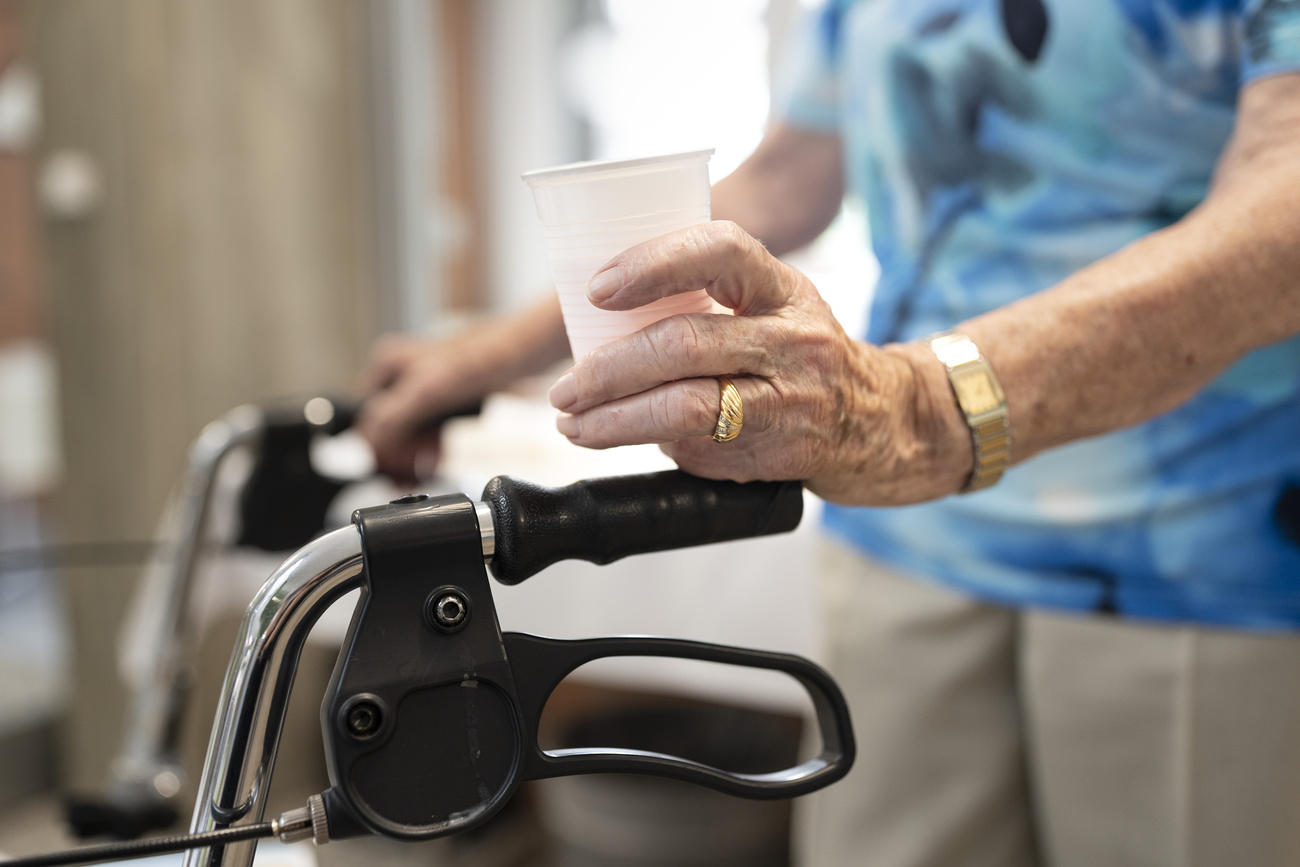
Calls for elderly care homes to be better prepared for pandemics

Experts have called for better national coordination to protect the elderly in care homes from future pandemics. A newspaper reports that more than half the Covid-19 deaths originated from infections within such establishments.
A Tages AnzeigerExternal link survey found that 53% of all people who died as a result of coronavirus infection were care home residents. The results varied from canton to canton, with Zurich, Basel City and Vaud reporting a care home death rate of at least 60% with the figure dropping to 41% in Geneva.
As only a handful of cantons recorded deaths of residents after they were transferred to hospital, as opposed to dying at care homes, the proportion of care home-related deaths may actually be higher the report concludes.
Looking at the available statistics, the newspaper reports that the rate of Swiss care home deaths is comparable to Sweden and Britain, where the subject has led to much criticism. Of the 4,065 infections reported in the over-80 age group nationwide, more than a quarter succumbed to the disease that proved particularly fatal among the elderly.
The CuravivaExternal link national association of retirement and nursing homes complained of a shortage of essential protection materials available to care homes.
“Considering the possibility of a second wave, a national protection concept is now needed that applies to all homes and sets clear rules,” said Andreas Stuck, president of the Swiss Geriatric SocietyExternal link. This should include guidelines on how to isolate infected residents, training staff to deal with viruses and establishing clear lines of responsibility in managing epidemics.
But Rudolf Hauri, president of the Association of Cantonal Physicians, cautioned against a knee-jerk reaction. “It is inappropriate to speak of older people being sacrificed in Switzerland,” he said. He added that the authorities had taken measures to protect the vulnerable age group and that Covid-19 may not have been the sole cause of death for those that were already chronically or terminally ill.

In compliance with the JTI standards
More: SWI swissinfo.ch certified by the Journalism Trust Initiative



























You can find an overview of ongoing debates with our journalists here . Please join us!
If you want to start a conversation about a topic raised in this article or want to report factual errors, email us at english@swissinfo.ch.